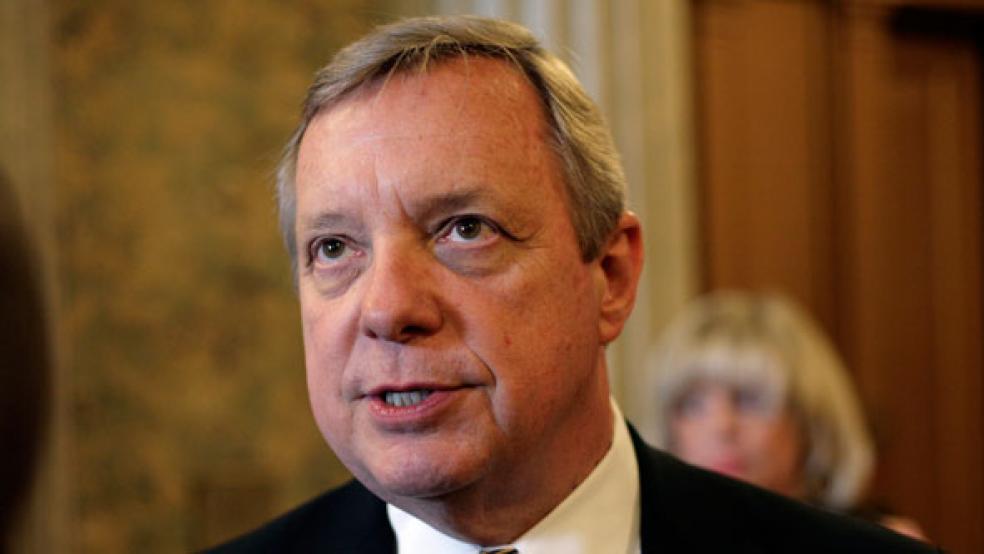Illinois Sen. Dick Durbin has asked his fellow Democrats to swallow some tough medicine on cuts to Medicare: Even without the fiscal cliff, the health insurance program for seniors needs to trim its spending in order to survive.
Congressional Republicans have insisted that entitlement reform for programs such as Medicare be part of any agreement to avoid the combined $600 billion in tax hikes and automatic cuts set to begin next year. In his prepared remarks that were distributed before he spoke Tuesday morning at the Center for American Progress, Durbin said any overhaul of entitlements should be off the table in fiscal cliff negotiations.

But he left that line out as he dwelled on the need to slow down runaway spending in Medicare and Medicaid, which now consume about one-fifth of the federal budget. With the baby boomers easing into retirement, Medicare is slated to run out of money in the next 12 years, Durbin warned.
“That is scary, because we have so many Americans who count on it, almost 50 million Americans and the number is growing,” said Durbin, the Senate majority whip and a member of the bipartisan “Gang of Eight” that is trying to hash out a budget deal. “These are people who paid in over a lifetime to Social Security and Medicare and fully expect the protection which they’ve invested in to be there. And it has to be there. So we need to take an honest look at Medicare.”
This doesn’t mean Durbin supports the move to a voucher-style program – or what Republicans call premium support – the plan House Budget Committee Chairman Paul Ryan, R-Wis., proposed. Durbin suggested adopting some of the reductions contained in the 2010 Simpson-Bowles report.
The Illinois lawmaker didn’t specify which of the proposed $330 billion of cuts to Medicare contained in the analysis from the commission – which he served on – that was chaired by former Wyoming Republican Sen. Alan Simpson and Erskine Bowles, a Clinton-era White House chief of staff. But the decade’s worth of reductions is considerably less than the $1.6 trillion tax hike President Obama is asking for over the same timeline.
Durbin applauded Republican lawmakers who’ve broken with party doctrine to consider tax increases, saying, “We need the same willingness on the left,” a tacit acknowledgement that Democrats are potentially as much an obstacle as the GOP to a deal.
The Senate’s second-ranking Democrat added that any bargain needs to clear the House of Representatives with votes from each party. A genuine bipartisan vote possibly helps inoculate both sides from criticism in the 2014 election and improves the chances of the measure clearing the Democratic majority Senate.
“If [House Speaker John Boehner] will make a commitment to a bipartisan solution in the House,” Durbin said, “I think we can get this done.”




